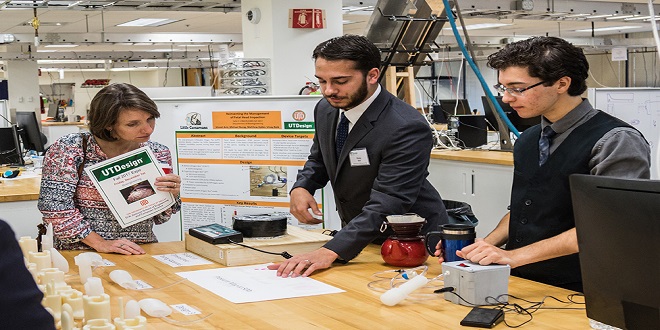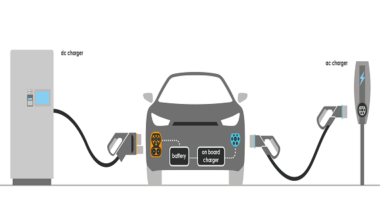PROVIDING MASTERS LEVEL COMPUTING STUDENTS WITH REAL-LIFE LEARNING EXPERIENCES VIA CAPSTONE PROJECTS

INTRODUCTION
It is of the greatest importance that the graduates who enter the Information and Communication Technologies (ICT) sector, whether from undergraduate or postgraduate programmed, have appropriate real-life leaning experiences during their programmed so that they can immediately operate in an effective and professional manner. Within 3 and 4 year undergraduate computing programmers that lead to B.Sc. B.Eng. and B.A. degrees, and 4 and 5 year programmed that lead to computing qualifications such as M.Eng., real-life learning experiences can be achieved in a number of ways, for example:
- By individual placements/internships within industry itself. These may be classed as short term or long term, often occupying most of an academic year or even longer.
- By industry-related team/group projects within the body of programmers.
- By industry-related individual student projects that frequently occur in the final year of programmers and which may be a continuation of work which a student has begun during a placement in industry but with a more academic emphasis.
SUNDERLAND’S MASTERS LEVEL PROGRAMMES IN COMPUTING
Within the School of Computing and Technology at the University of Sunderland we currently offer a wide range of taught programmed at masters level in both computing and engineering management. The current masters level programmers in computing are:
MSc. Computer Based Information Systems, MSc. Information Technology Management, MSc. Electronic Commerce, MSc Software Engineering, MSc. Health Information Management, MSc. Electronic Commerce Applications, MSc. Intelligent Systems, MSc. Network Systems, and MSc Internet Engineering.
PROJECT STAGE
The overall aim for the project stage in the School’s computing programmes is that each student will demonstrate his/her ability to devise and plan, control and execute a substantial project and undertake effective research in the domain. The individual learning outcomes of a typical project with regard to knowledge and abilities are (University of Sunderland, 2004):
- Knowledge of a new area of the programmes discipline (practical and theoretical).
- Ability to effectively scope a project and meet stated objectives.
- Ability to assimilate and disseminate research relevant to the specific project area.
- Ability to use effective time management skills to meet objectives.
- Ability to present the results of a project both verbally and in written form.
- Ability to critically evaluate the work undertaken and the products devoured.
ASSESSMENT OF PROJECTS
The assessment of the projects involves evaluation in five areas: research, success, dissertation, control, and viva. The balance between the assessment areas and the staff involved are detailed in the table below. Very clear guidelines have been published (University of Sunderland, 2004) with regard to the criteria which staff are to use when assessing each of the areas listed in the table.
As is made clear in the documentation it is primarily the research element that identifies the project as being of postgraduate standard. Hence it is insufficient for a student to simply achieve a total numerical pass mark for the project. The Research element must also receive at least a pass mark.
IF IT WAS ONLY THAT SIMPLE
Until the late 1990s the School was offering only two major MSc. programmes: MSc. Computer Based Information Systems, and MSc. Information Technology Management. These were being offered on and off campus and in both part-time and full-time modes of study. On-campus, the part-time students were nearly all in employment and most found projects with their employer.
Another common challenge is addressing errors in Shabd Roop. One of the most frequent errors is using the wrong form for a particular case or gender. To avoid this, learners need to have a good understanding of the rules and patterns that govern Shabd Roop. Practice exercises that focus on identifying and correcting errors can also be helpful.
CONCLUSIONS
In this paper we have attempted to provide not only contextual information on a range of masters capstone projects but also details of what could be regarded as good practice with regard to: practical parameters, assessment, and operation across widely distributed centres.





